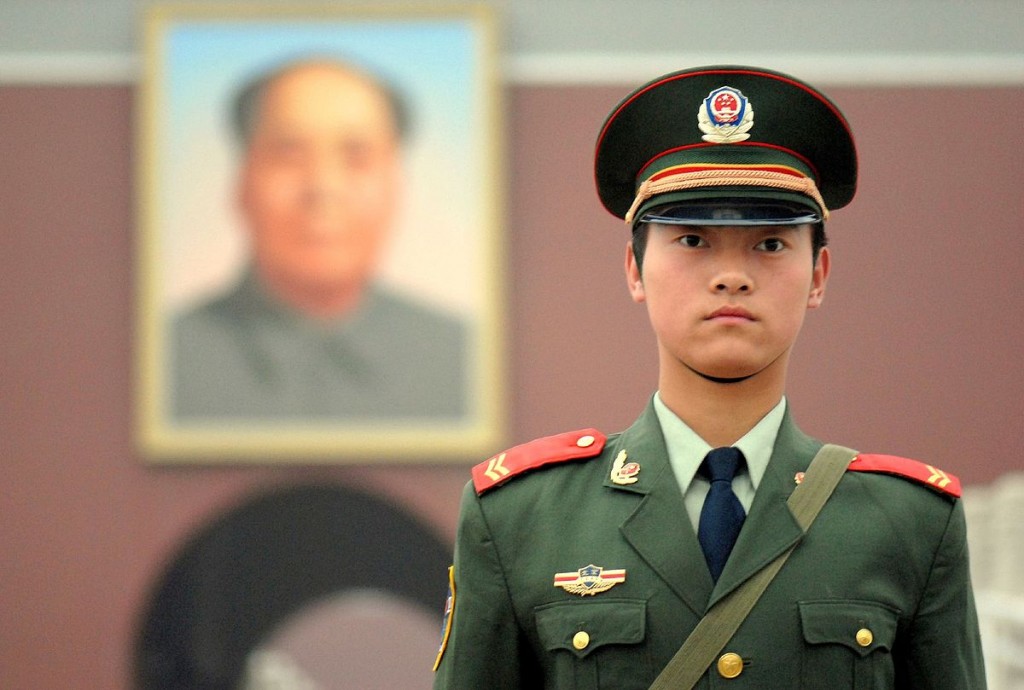“[T]he more independent NGOs, especially the ones that criticize government policies or don’t help the government’s image, have encountered a policy of containment, even destruction. . . . The government just wants us to disappear.”
That’s the public protest of a Chinese activist who runs a group that promotes stronger labor rights in the southern province of Guangdong. In what is just the latest proof that, yes, China is still run by an authoritarian communist party, the New York Times reports that a number of civil society groups are facing strict government scrutiny for their politically incorrect opinions. From the labor rights group in Guangdong to a group that advocates on behalf of those infected with HIV to a free-market think tank in Beijing, numerous Chinese NGOs have seen staff and leadership threatened, intimidated, jailed, or disappeared.
The Chinese Communist Party has even moved against less obviously political groups, such as a string of more than twenty rural, locally run libraries that have shuttered in the past week (Times reporting again, here). The libraries provided underprivileged Chinese children with access to books and organized cross-country educational tours in which students were taught non-sanctioned lessons by liberal academics. Resistance to centralized educational models is by no means a phenomenon unique to the Middle Kingdom (see here for a recent example from Hungary or simply refer to our own squabbles over Common Core here in America), but in China these debates cannot be separated from a larger effort by the communist government to snuff out a freestanding civil society.
Similar educational crackdowns are sweeping through Chinese higher education, too, with a recent government directive instructing administrators to “eliminate the teachers who often publish criticism attacking the party and socialism.” History textbooks are frequent ideological props, with accounts of the 1989 Tiananmen Square massacres missing completely from official accounts.
Similar censorship has muzzled key personalities in the state-run media. More than fifteen top executives at CCTV, the main Party network, have now been snatched up by state police after some reporting voiced criticisms of the government. But it’s not just dissenters who wind up on the wrong lists, as evidenced by the recent cannibalization of star CCTV anchor Rui Chenggang—hugely popular in China and fiercely nationalistic—who is being held on charges unknown. Despite being seen as a CCP “mouthpiece,” Chenggang was also friendly with Western journalists and economists and strutted around in designer suits and flashy sports cars. It is thus not enough to simply tow the party line, one must exhibit the personal characteristics deemed appropriate and proper by the Party.
Anti-Western ideology lies at the heart of this entire crusade. Since coming to office in 2012, Chinese president Xi Jinping has vigorously prosecuted a widespread and far-reaching “anti-corruption” campaign that has come to be seen for what it is: a purge of Xi’s political opponents and Party critics. No mere strongman, Xi seems by all accounts to be an unironic communist ideologue, doubling down on compulsory Marxist university education and insisting on a return to communist values within Party leadership. In late 2013, Xi circulated a memo warning against “Western forces hostile to China” such as “constitutional democracy,” with its emphases on press freedom and civic participation. Marx saw civil society as a way for the bourgeois to exert control over the political and economic fate of the country; Xi’s version of this sees civil society as a natural breeding ground for anti-government, Western-influenced sentiment.
Xi’s rhetoric has trickled down through Party leadership and helps explain the crackdown described above. Just last month Education Minister Yuan Guiren put the point bluntly: “[We must] by no means allow teaching materials that disseminate Western values in our classrooms.” Many of the NGOs that have been shut down so far, including that string of rural libraries, received funding from outside of China. As recently as the middle of last year, China watchers predicted the coming “thaw” of Chinese civil society, with The Economist editorializing optimistically about the growing number of NGOs (roughly 150,000 registered groups in 2000 to more than 500,000 in 2013). But the optimism of less than a year ago already seems to be fading, as the chill of government control once again sets in.
Rehearsal of these facts is a necessary exercise in light of popular opinion about China, which sees it as little more than a key trading partner with a hazy record on human rights. Many don’t buy the idea that China’s a “real” communist state, but as the current contractions of civil society show, the Maoists and Marxists in the Politburo remain committed to minimizing the space between the Party and the individual, and are willing to jail anyone who resists.
We in America tend to talk about civil society in abstract and detached terms. We’ve heard the arguments about "intermediary institutions" and "little platoons" so often that we lose interest, and our eyes start to glaze over at mention of Tocqueville’s name. But a passing glance at China today – in 2015 – is a useful if tragic reminder of the costs of a weak civil society and the power of a government unchecked by non-political associations. We need not depend on Orwell’s allegories to understand the dynamics of freedom and repression—we just need to open the international section of the Times.







Some “decentralists” are unclear as to whether local government is government, and should be limited as such, or part of “civil society,” and should not be limited, especially in regard to controlling landowners. I think it must be made very clear that local government is in fact government. I would even argue that Home Owners Associations, when Covenanted with the land, are government, not civil society.